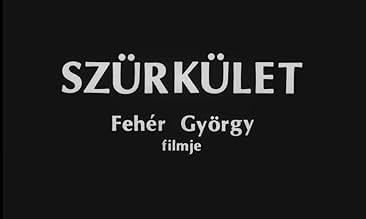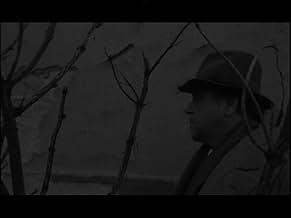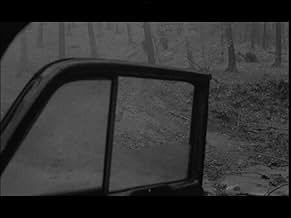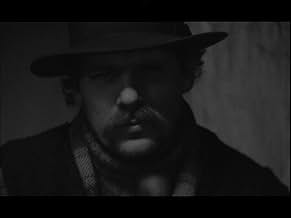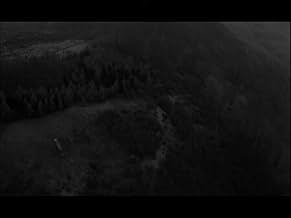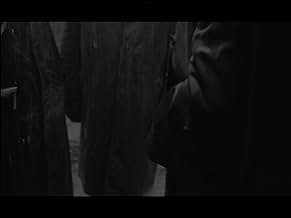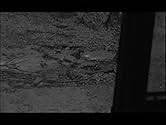IMDb RATING
7.2/10
1.3K
YOUR RATING
When a schoolgirl is found murdered in the woods, a retiring detective tries to find her murderer.When a schoolgirl is found murdered in the woods, a retiring detective tries to find her murderer.When a schoolgirl is found murdered in the woods, a retiring detective tries to find her murderer.
- Director
- Writers
- Stars
- Awards
- 1 win & 1 nomination total
- Director
- Writers
- All cast & crew
- Production, box office & more at IMDbPro
Featured reviews
Ostensibly, a police procedural but completely bloodless; impossible to care any less about the story. If you find Tarr compelling, you can stop reading now and go watch it.
The issue here is by no means the relentless slowness (there are some very well blocked shots), it is that there is a payoff is well <50% of the time (e.g., the shot from the inside of the gas station, the shot of the car leaving the gas station, the long circling shot that laughably has the two detectives in a silly stare off). Everything visual in the film exists merely for the shot, leaving everything else (story, acting, telos, logic, music) out, which can be fine in principle. However, the music is bizarrely cut-and-paste, with a bad edit that includes a portion of Kate Bush's "Hello Earth" (which has the line, in German, "Give us more light"; maybe that's why it was chosen). The chunk of music, which falls into the movie again and again verbatim, is not even well cross-faded; it's startlingly bad and amateurish in a film that at least knows how to block a shot but, again, this seems symptomatic of merely putting visuals on a screen with no sense of filmic phenomenology. Thus, the acting is either ill-suited (one can't exactly say bad) or non-existent, but that is above all for the sake of the film's look, of course. I think the most iconic performance in the film is statue of a bird.
Like Tarr, Feher seems to think that lingering accomplishes something and the very worn out, completely apt comparison to Tarkovsky illustrates a billion-fold what's wrong here. You also get some domestic violence apologetics and creepy girl fondling, ostensibly to provide the red herring in the whodunnit. The domestic violence is completely unprepared (and reminiscent, almost to the point of homage, of the Stalker's wife stupid fit on the floor) and seems, like the girl-fondling, a little to "I want this in the film" from the director.
But perhaps I've misunderstood that this is supposed to be a comedy. I definitely laughed more than once (the scene with the forensic psychologist, for instance). Like Tarkovsky's Mirror (my favorite film) or Gherman's Hard to be a God, it's a good idea to watch this film with no preconceptions; the difference from the Russian films is one's patience is almost never rewarded.
If you've never seen anything like this, and you didn't just hate it, you really should treat yourself and go see something actually like it (and I don't mean something by Tarr).
The issue here is by no means the relentless slowness (there are some very well blocked shots), it is that there is a payoff is well <50% of the time (e.g., the shot from the inside of the gas station, the shot of the car leaving the gas station, the long circling shot that laughably has the two detectives in a silly stare off). Everything visual in the film exists merely for the shot, leaving everything else (story, acting, telos, logic, music) out, which can be fine in principle. However, the music is bizarrely cut-and-paste, with a bad edit that includes a portion of Kate Bush's "Hello Earth" (which has the line, in German, "Give us more light"; maybe that's why it was chosen). The chunk of music, which falls into the movie again and again verbatim, is not even well cross-faded; it's startlingly bad and amateurish in a film that at least knows how to block a shot but, again, this seems symptomatic of merely putting visuals on a screen with no sense of filmic phenomenology. Thus, the acting is either ill-suited (one can't exactly say bad) or non-existent, but that is above all for the sake of the film's look, of course. I think the most iconic performance in the film is statue of a bird.
Like Tarr, Feher seems to think that lingering accomplishes something and the very worn out, completely apt comparison to Tarkovsky illustrates a billion-fold what's wrong here. You also get some domestic violence apologetics and creepy girl fondling, ostensibly to provide the red herring in the whodunnit. The domestic violence is completely unprepared (and reminiscent, almost to the point of homage, of the Stalker's wife stupid fit on the floor) and seems, like the girl-fondling, a little to "I want this in the film" from the director.
But perhaps I've misunderstood that this is supposed to be a comedy. I definitely laughed more than once (the scene with the forensic psychologist, for instance). Like Tarkovsky's Mirror (my favorite film) or Gherman's Hard to be a God, it's a good idea to watch this film with no preconceptions; the difference from the Russian films is one's patience is almost never rewarded.
If you've never seen anything like this, and you didn't just hate it, you really should treat yourself and go see something actually like it (and I don't mean something by Tarr).
Clearly influenced by Bela Tarr and determined to outdo him when it comes to pacing, (funereal at best), and general moroseness Gyorgy Feher's "Twilight" isn't so much like watching paint dry as staring at the grey wall before it's painted. Based on the same Friedrich Durrenmatt novel as "It Happened in Broad Daylight" and "The Pledge" Feher strips it of all suspense yet gives it a sense of dread as it moves with all the slowness of a lackadaisical snail from scene to scene, image to image that is both disquieting and disorientating.
An eight year old girl is found murdered in the woods and the policeman whose last case it is is determined to find the killer even after retiring. We can just about figure this out from the material onscreen but really it helps if you've read the book or seen the other films. This is more like a palimpsest of Durrenmatt's novel, something not quite fully formed, a series of beautifully grim images rather than an actual narrative and not helped any by the monosyllabic performances of its cast.
It is, in other words, the worst kind of art-house movie, one determined to hold onto its 'masterpiece' credentials whatever the cost. Amazingly it's never really boring; you watch it transfixed in the vain hope that something might actually happen and, of course, it never does. As Jean Brodie might say, 'For those who like this sort of thing, this is the sort of thing they like'.
An eight year old girl is found murdered in the woods and the policeman whose last case it is is determined to find the killer even after retiring. We can just about figure this out from the material onscreen but really it helps if you've read the book or seen the other films. This is more like a palimpsest of Durrenmatt's novel, something not quite fully formed, a series of beautifully grim images rather than an actual narrative and not helped any by the monosyllabic performances of its cast.
It is, in other words, the worst kind of art-house movie, one determined to hold onto its 'masterpiece' credentials whatever the cost. Amazingly it's never really boring; you watch it transfixed in the vain hope that something might actually happen and, of course, it never does. As Jean Brodie might say, 'For those who like this sort of thing, this is the sort of thing they like'.
If you're looking for an alternative of Béla Tarr then you must see this film. This absurdly slow film has a phenomenal atmosphere! The foggy theme adds an alien feel to it and takes the viewer miles away from the reality. The murder mystery is told in the most non-conventional way possible with very limited dialogues while the silence and climate adds a language of its own.
The background score fills the hypnotic flying scenes over the unending forest Hill area with a sense of omen. I got the cinematic experience I was looking for and it certainly deserves a watch from any foreign language Film lover.
The background score fills the hypnotic flying scenes over the unending forest Hill area with a sense of omen. I got the cinematic experience I was looking for and it certainly deserves a watch from any foreign language Film lover.
Some years ago I went for a weekend in Budapest and because there had been a delay of the plane, we arrived in the evening. We were on the Buda side up near the woods at a round hotel above the old town. In the morning we thrust back the curtains to look down at the river and the Pest side, but we couldn't see anything. It was just grey all the way round like a fog that only gradually lifted. In the film, Twilight (Szurkulet) it was in black and white and grey. Really slow but lovely as the detective investigates a series of child murders. A child that maybe mad tells us about a picture and a giant or a wizard who gave hedgehogs to the dead child. Although nothing is black and white about it and it seems that it not so friendly to give a child a chocolate hedgehog. There is much of the time in a car but it is still rather dark and grey and then the rain comes and the windscreen wipers struggle to overcome and it just seems as a long grey wall. The soundtrack is a strange but likeable sound although there is no credit given but it seems similar that it was like we heard in Werner Herzog's Nosferatu (1979).
Seeing this film was one of the most memorable cinematic experiences I have ever had. The extremely slow movement of the camera across stunning black and gray scenes was mesmerizing. Over time, it induced a kind of trance-like state that intensified the mysterious and sinister atmosphere of the film. The minimalist script was well served by the reflective and melancholy main character, a detective attempting to solve a tragic crime in a remote and desolate rural area. The overall effect was much like a strange, haunting dream with many emotional layers. I loved the film and hope I can see it again on a big screen one day!
Did you know
- TriviaThe traditional Gregorian song "Tsintskaro" is used on the soundtrack. This song was also used by Werner Herzog in his movie "Nosferatu the Vampyre" (1979) and Kate Bush in her song "Hello earth" (1985).
- ConnectionsReferenced in Film Junk Podcast: Episode 935: Love Lies Bleeding (2024)
- SoundtracksZinzkaro
Georgian folk music (uncredited)
Performed by Vocal Ansambl Gordela (uncredited)
Taken from Werner Herzog's
Nosferatu, fantôme de la nuit (1979)
- How long is Twilight?Powered by Alexa
Details
- Runtime1 hour 45 minutes
- Color
- Aspect ratio
- 1.66 : 1
Contribute to this page
Suggest an edit or add missing content



